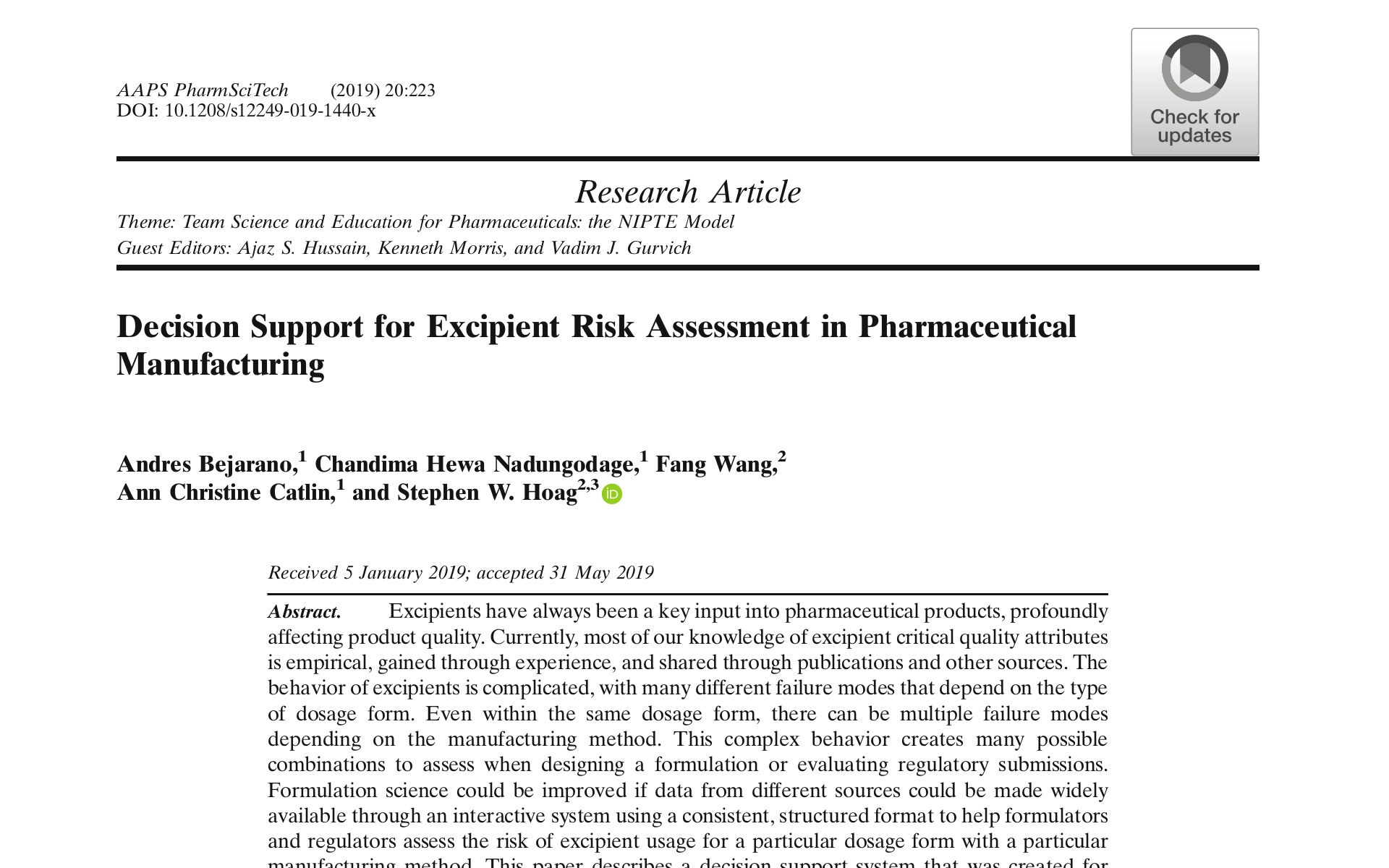
Excipients have always been a key input into pharmaceutical products, profoundly affecting product quality. Currently, most of our knowledge of excipient critical quality attributes is empirical, gained through experience, and shared through publications and other sources. The behavior of excipients is complicated, with many different failure modes that depend on the type of dosage form. Even within the same dosage form, there can be multiple failure modes depending on the manufacturing method. This complex behavior creates many possible combinations to assess when designing a formulation or evaluating regulatory submissions. Formulation science could be improved if data from different sources could be made widely available through an interactive system using a consistent, structured format to help formulators and regulators assess the risk of excipient usage for a particular dosage form with a particular manufacturing method. This paper describes a decision support system that was created for assessing excipient risk in different types of formulations and considering different types of manufacturing methods, dosage forms, and excipient functionality. The Excipient Risk Assessment System consists of a database that stores knowledge about factors that affect formulation design and a decision support processor that manages selections for creating formulation scenarios and assigning risk. Formulation and risk assessment data are provided by formulation science experts. This enables the system to assess compatibility among excipients, functionality, dosage forms, and manufacturing methods selected for formulations. The interface guides users through the creation of formulation scenarios and displays customized, interactive risk assessment reports for users to search and explore.
Citation: Bejarano, A., Hewa Nadungodage, C., Wang, F. et al. AAPS PharmSciTech (2019) 20: 223. https://doi.org/10.1208/s12249-019-1440-x